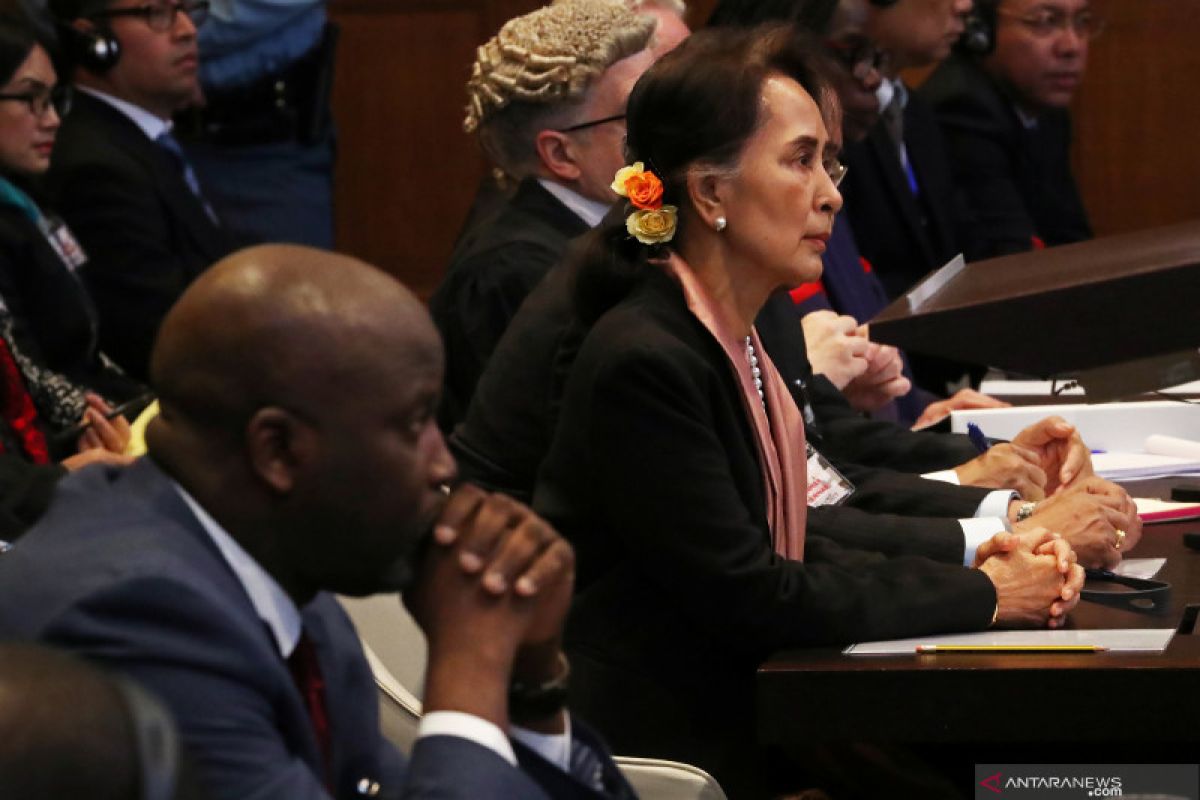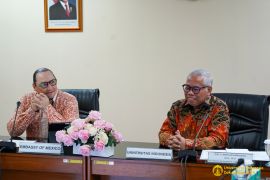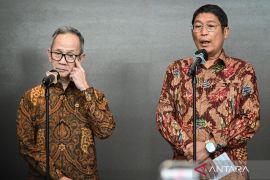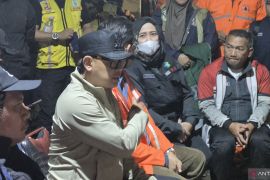The ICJ order brings increased scrutiny of Myanmar’s horrific brutality against the Rohingya and raises the political cost of the UN Security Council’s weak response to the crisis so farJakarta (ANTARA) - The International Court of Justice (ICJ) ordered Myanmar to take emergency measures to protect the Rohingya from persecution and cruelty and ensure the preservation of evidence related to alleged crimes against them.
The verdict was announced on Thursday in a case of alleged genocide against Myanmar posted by the Gambia, a Muslim-majority country, last November.
The order of the ICJ followed the lawsuit launched by the Gambia on November 11 accusing that Myanmar's military actions in Rakhine state had violated the Convention on the Prevention and Punishment of the Crime of Genocide.
The ICJ held a hearing at the request of the Gambia in December.
The ICJ’s order to take provisional measures is legally binding on the parties. In November, Myanmar had explicitly recognized the ICJ’s authority, and in December, Aung San Suu Kyi, representing Myanmar before the ICJ in her capacity as foreign minister, acknowledged the court’s role as a “vital refuge of international justice.”
The court unanimously ordered Myanmar to prevent all acts under article 2 of the Genocide Convention, ensure that its military does not commit genocide, and take effective measures to preserve evidence related to the underlying genocide case.
The court has also ordered Myanmar to report on its implementation of the order in four months, and every six months thereafter.
The order does not prejudge the question of the court’s jurisdiction to deal with the merits of the case, the case’s admissibility before the court, or the merits of Gambia’s allegation that Myanmar has violated provisions of the Genocide Convention.
A case before the ICJ can take years to reach a resolution.
Following this, representative of Indonesia to the ASEAN Intergovernmental Commission on Human Rights (AICHR) Yuyun Wahyuningrum said that Myanmar should ensure the fulfillment of basic rights of Rohingya and the elimination of discriminatory policies to avoid acts of violence against the Muslim ethnic minority group.
"To prevent acts of violence against Rohingya, basic rights must be fulfilled, such as the right to not be discriminated against based on religion, ethnicity, skin color, language, politics, and others," Wahyuningrum stated.
Wahyuningrum highlighted the need for the Myanmar government to take serious steps to implement the preventive measures ordered by the ICJ.
"To realize the order to prevent violence against Rohingya, the Myanmar government must take serious steps to reduce the expression of hatred towards the Rohingya. Hate speeches against Rohingya must be eliminated," Wahyuningrum stated.
Moreover, in the landmark verdict, the ICJ ordered Myanmar to take concrete steps to end genocide against the Rohingya.
"That can change the order and system that exists in the community in Myanmar," he stated.
Wahyuningrum noted that the ICJ’s decision also made the ASEAN to self-introspect on the steps taken by the association so far to fulfill the prerequisites to prevent acts of violence against Rohingya.
The ASEAN must then also review further efforts to deal with the problem of Rohingya.
"On account of the decision taken by the International Court of Justice, the ASEAN must review its policies related to the Rohingya ethnic group," Wahyuningrum stated.
Meanwhile, Human Rights Watch (HRW) has appealed to UN agencies to ensure enforcement of the decision taken by the ICJ on Myanmar to protect the Rohingya from persecution and cruelty.
"The government and concerned UN agencies must ensure that Myanmar abides by the International Court of Justice's orders," associate international justice director at HRW, Param-Preet Singh, noted.
Under article 41(2) of the ICJ Statute, the court’s orders to take provisional measures are automatically sent to the UN Security Council, he remarked.
Such an order will step up pressure on the council to take concrete action in Myanmar, including through a binding resolution to address some of the indicators of genocidal intent outlined in the comprehensive 2018 report of the international fact-finding mission.
For instance, the Security Council could pass a resolution directing Myanmar to lift restrictions on Rohingyas’ freedom of movement, abolish unnecessary restrictions on humanitarian access to Rakhine State, repeal discriminatory laws, and ban practices that limit Rohingya access to education, health care, and livelihoods.
The Security Council has yet to take significant action on Myanmar, in part due to Russia and China’s apparent inclination to use their vetoes to shield Myanmar’s government and military.
“The ICJ order brings increased scrutiny of Myanmar’s horrific brutality against the Rohingya and raises the political cost of the UN Security Council’s weak response to the crisis so far,” Singh noted.
“China and Russia should stop blocking the Security Council from taking action to protect the Rohingya,” Singh emphasized.
Other UN bodies should take steps to reinforce the order, the HRW stated.
The UN Human Rights Council and the UN General Assembly could pass resolutions calling on Myanmar to comply with its terms. This could spur other nations to take concrete action in their bilateral relations with Myanmar.
Taking cognizance of ICJ's decision
The Government of Myanmar took note of today’s unanimous ruling of the ICJ to take “provisional measures” in the lawsuit filed by the Gambia against Myanmar.
Myanmar appeared before the ICJ in this case to assist the honorable judges to make correct factual findings on the proposition made by the Gambia that the mainly-Muslim Rohingya had been subjected to genocide in Rakhine State in 2016-2017, according to Myanmar's Ministry of Foreign Affairs, as quoted from the official account.
As concluded by the Independent Commission of Enquiry (ICOE) in its recent report, no genocide had occurred in Rakhine.
The Commission found that war crimes had occurred, and those are currently being investigated and prosecuted by Myanmar‘s national criminal justice system.
It is important for Myanmar that the court arrive at a factually correct decision on the merits of the case.
The unsubstantiated condemnation of Myanmar by some human rights actors has presented a distorted image of the situation in Rakhine and impacted Myanmar’s bilateral relations with several nations.
This has affected Myanmar’s ability to lay down the foundation for sustainable development in Rakhine.
It has become increasingly important to be aware of the fact that one of the historical functions of “provisional measures” is to protect the Court against possible accusations of failure to take preventive action at the start of a case.
"The Court's decision given in the present proceedings in no way prejudges the question of the jurisdiction of the Court to deal with the merits of the case or any questions relating to the admissibility of the application or to the merits themselves,” according to the Court ruling.
Related news: HRW urges UN agencies to ensure ICJ's Rohingya decision enforced
Related news: Myanmar takes cognizance of ICJ verdict on Rohingya
Related news: Indonesia hopes Rakhine situation back to normal again: Jokowi
EDITED BY INE
Editor: Fardah Assegaf
Copyright © ANTARA 2020












